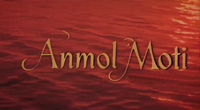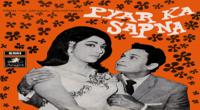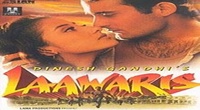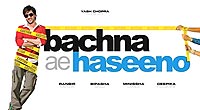This article needs additional citations for verification. (September 2013) (Learn how and when to remove this template message) |
Sunday is the day of the week between Saturday and Monday. Sunday is a day of rest in most Western countries, as a part of the weekend and weeknight.
For most observant Christians, Sunday is observed as a day of worship and rest, holding it as the Lord's Day and the day of Christ's resurrection. In some Muslim countries and Israel, Sunday is the first work day of the week. According to the Hebrew calendars and traditional Christian calendars, Sunday is the first day of the week. According to the International Organization for Standardization ISO 8601, Sunday is the seventh day of the week.
Contents
Etymology
The name "Sunday", the day of the Sun, is derived from Hellenistic astrology, where the seven planets, known in English as Saturn, Jupiter, Mars, the Sun, Venus, Mercury and the Moon, each had an hour of the day assigned to them, and the planet which was regent during the first hour of any day of the week gave its name to that day. During the 1st and 2nd century, the week of seven days was introduced into Rome from Egypt, and the Roman names of the planets were given to each successive day.
Germanic peoples seem to have adopted the week as a division of time from the Romans, but they changed the Roman names into those of corresponding Teutonic deities. Hence, the dies Solis became Sunday (German, Sonntag).
The English noun Sunday derived sometime before 1250 from sunedai, which itself developed from Old English (before 700) Sunnandæg (literally meaning "sun's day"), which is cognate to other Germanic languages, including Old Frisian sunnandei, Old Saxon sunnundag, Middle Dutch sonnendach (modern Dutch zondag), Old High German sunnun tag (modern German Sonntag), and Old Norse sunnudagr (Danish and Norwegian søndag, Icelandic sunnudagur and Swedish söndag). The Germanic term is a Germanic interpretation of Latin dies solis ("day of the sun"), which is a translation of the Ancient Greek heméra helíou. The p-Celtic Welsh language also translates the Latin "day of the sun" as dydd Sul.
In most Indian languages, the word for Sunday is Raviv?ra or Adityav?ra or its derived forms — v?ra meaning day, Aditya and Ravi both being a style (manner of address) for Surya i.e. the Sun and Suryadeva the chief solar deity and one of the Adityas. Raviv?ra is first day cited in Jyotisha, which provides logical reason for giving the name of each week day. In the Thai solar calendar of Thailand, the name ("Waan Arthit") is derived from Aditya, and the associated colour is red.
In Russian the word for Sunday is ??????????? (Voskreseniye) meaning "Resurrection". In other Slavic languages the word means "no work", for example Polish: Niedziela, Ukrainian: ???i??, Belorussian: ???????, Croatian: nedjelja, Serbian and Slovenian: Nedelja, Czech: Ned?le, and Bulgarian: ??????.
The Modern Greek word for Sunday, Greek: ???????, is derived from Greek: ?????? (Kyrios, Lord) also, due to its liturgical significance as the day commemorating the resurrection of Jesus Christ, i.e. The Lord's Day.
Position in the week
ISO 8601
The international standard ISO 8601 for representation of dates and times, states that Sunday is the seventh and last day of the week. This method of representing dates and times unambiguously was first published in 1988.
Culture and languages
In the Judaic, some Christian, as well as in some Islamic tradition, Sunday has been considered the first day of the week. A number of languages express this position either by the name for the day or by the naming of the other days. In Hebrew it is called ??? ????? yom rishon, in Arabic ????? al-ahad, in Persian and related languages ?????? yek-shanbe, all meaning "first". In Greek, the names of the days Monday, Tuesday, Wednesday, and Thursday ("???????", "?????", "???????" and "??????") mean "second", "third", "fourth", and "fifth" respectively. This leaves Sunday in the first position of the week count. The current Greek name for Sunday, ??????? (Kyriake), means "Lord's Day" coming from the word ?????? (Kyrios), which is the Greek word for "Lord". Similarly in Portuguese, where the days from Monday to Friday are counted as "segunda-feira", "terça-feira", "quarta-feira", "quinta-feira" and "sexta-feira", while Sunday itself similar to Greek has the name of "Lord's Day" ("domingo"). In Vietnamese, the working days in the week are named as: "Th? Hai" (second day), "Th? Ba" (third day), "Th? T?" (fourth day), "Th? N?m" (fifth day), "Th? Sáu" (sixth day), "Th? B?y" (seventh day). Sunday is called "Ch? Nh?t", a corrupted form of "Chúa Nh?t" meaning "Lord's Day." Some colloquial text in the south of Vietnam and from the church may still use the old form to mean Sunday.
In Italian, Sunday is called "domenica", which also means "Lord's Day" (from Latin "Dies Dominica"). One finds similar cognates in French, where the name is "dimanche", as well as Romanian ("duminic?") and Spanish and Portuguese ("domingo").
Slavic languages implicitly number Monday as day number one, not two.
| Polish | Slovak | Czech | Bulgarian | Russian | literal or derived meaning | |
|---|---|---|---|---|---|---|
| Monday | poniedzia?ek | pondelok | pond?lí | ?????????? | ??????????? | (day) after not working |
| Tuesday | wtorek | utorok | úterý | ??????? | ??????? | second (day) |
| Wednesday | ?roda | streda | st?eda | ????? | ????? | middle (day) |
| Thursday | czwartek | štvrtok | ?tvrtek | ????????? | ??????? | fourth (day) |
| Friday | pi?tek | piatok | pátek | ????? | ??????? | fifth (day) |
| Saturday | sobota | sobota | sobota | ?????? | ??????? | sabbath |
| Sunday | niedziela | nedela | ned?le | ?????? | ??????????? | not working (day) |
Russian ??????????? (Sunday) means "resurrection (of Jesus)" (that is the day of a week which commemorates it). In Old Russian Sunday was also called ?????? "free day" or "day with no work", but in the contemporary language this word means "week". Hungarian péntek (Friday) is a Slavic loanword, so the correlation with "five" is not evident to Hungarians. Hungarians use Vasárnap for Sunday, which means "market day".
In the Maltese language, due to its Siculo-Arabic origin, Sunday is called "Il-?add", a corruption of "wie?ed" meaning "one". Monday is "It-Tnejn" meaning "two". Similarly Tuesday is "It-Tlieta" (three), Wednesday is "L-Erbg?a" (four) and Thursday is "Il-?amis" (five).
In Armenian, Monday is (Yerkoushabti) literally meaning 2nd day of the week, Tuesday (Yerekshabti) 3rd day, Wednesday (Chorekshabti) 4th day, Thursday (Hingshabti) 5th day. Saturday is (Shabat) coming from the word Sabbath or Shabbath in Hebrew, and "Kiraki" coming from the word "Krak" meaning "fire" is Sunday, "Krak" describing the sun by fire. Apostle John also refers to the "Lord's Day" (in Greek, ??????? ?????, "kyriake hemera" i.e. the day of the Lord) in Rev. 1:10, which is another possible origin of the Armenian word for Sunday.
However, in many European countries calendars almost always show Monday as the first day of the week, which follows the ISO 8601 standard.
In the Persian calendar, Sunday is the second day of the week. However, it is called "number one" as counting starts from zero; the first day - Saturday - is denoted as 00.
Sunday in Christianity
Pagan correspondence
In Roman culture, Sunday was the day of the Sun god. In paganism, the sun was a source of life, giving warmth and illumination to mankind. It was the center of a popular cult among Romans, who would stand at dawn to catch the first rays of sunshine as they prayed.
The opportunity to spot in the nature-worship of their heathen neighbors a symbolism valid to their own faith was not lost on the Christians. One of the Church fathers, St. Jerome, would declare: "If pagans call the 'day of the sun,' we willingly agree, for today the light of the world is raised, today is revealed the sun of justice with healing in his rays."
A similar consideration may have influenced the choice of the Christmas date on the day of the winter solstice, whose celebration was part of the Roman cult of the sun. In the same vein, Christian churches have been built and are still being built (as far as possible) with an orientation so that the congregation faced toward the sunrise in the East. Much later, St. Francis would sing in his famous canticle: "Be praised, my Lord, through all your creatures, especially through my lord Brother Sun, who brings the day; and you give light through him. And he is beautiful and radiant in all his splendor! Of you, Most High, he bears the likeness."
Christian usage
The ancient Romans traditionally used the eight-day nundinal cycle, a market week, but in the time of Augustus in the 1st century AD, a seven-day week also came into use.
Justin Martyr, in the mid 2nd century, mentions "memoirs of the apostles" as being read on "the day called that of the sun" (Sunday) alongside the "writings of the prophets."
On 7 March 321, Constantine I, Rome's first Christian Emperor (see Constantine I and Christianity), decreed that Sunday would be observed as the Roman day of rest:
On the venerable Day of the Sun let the magistrates and people residing in cities rest, and let all workshops be closed. In the country, however, persons engaged in agriculture may freely and lawfully continue their pursuits; because it often happens that another day is not so suitable for grain-sowing or vine-planting; lest by neglecting the proper moment for such operations the bounty of heaven should be lost.[11]
Despite the official adoption of Sunday as a day of rest by Constantine, the seven-day week and the nundial cycle continued to be used side-by-side until at least the Calendar of 354 and probably later.[12]
In 363, Canon 29 of the Council of Laodicea prohibited observance of the Jewish Sabbath (Saturday), and encouraged Christians to work on the Saturday and rest on the Lord's Day (Sunday).[13] The fact that the canon had to be issued at all is an indication that adoption of Constantine's decree of 321 was still not universal, not even among Christians. It also indicates that Jews were observing the Sabbath on the Saturday.
Modern practices
Some Christian denominations, called "Sabbatarians", observe a Saturday Sabbath. The name "Sabbatarian" has also been claimed by Christians, especially Protestants, who believe Sunday must be observed with just the sort of rigorous abstinence from work associated with "Shabbat". Christians in the Seventh-day Adventist, Seventh Day Baptist, and Church of God (Seventh-Day) denominations, as well as many Messianic Jews, have maintained the practice of abstaining from work and gathering for worship on Saturdays (sunset to sunset) as did all of the followers of God in the Bible.
For most Christians the custom and obligation of Sunday rest is not as strict. A minority of Christians do not regard the day they attend church as important, so long as they attend. There is considerable variation in the observance of Sabbath rituals and restrictions, but some cessation of normal weekday activities is customary. Many Christians today observe Sunday as a day of church-attendance.
In Roman Catholic liturgy, Sunday begins on Saturday evening. The evening Mass on Saturday is liturgically a full Sunday Mass and fulfills the obligation of Sunday Mass attendance, and Vespers (evening prayer) on Saturday night is liturgically "first Vespers" of the Sunday. The same evening anticipation applies to other major solemnities and feasts, and is an echo of the Jewish practice of starting the new day at sunset. Those who work in the medical field, in law enforcement, and soldiers in a war zone are dispensed from the usual obligation to attend Church on Sunday. They are encouraged to combine their work with attending religious services if possible.
In the Eastern Orthodox Church, Sunday begins at the Little Entrance of Vespers (or All-Night Vigil) on Saturday evening and runs until "Vouchsafe, O Lord" (after the "prokeimenon") of Vespers on Sunday night. During this time, the dismissal at all services begin with the words, "May Christ our True God, who rose from the dead ...." Anyone who wishes to receive Holy Communion at Divine Liturgy on Sunday morning is required to attend Vespers the night before (see Eucharistic discipline). Among Orthodox Christians, Sunday is considered to be a "Little Pascha" (Easter), and because of the Paschal joy, the making of prostrations is forbidden, except in certain circumstances. Leisure activities and idleness, being secular and offensive to Christ as it is time-wasting, is prohibited[dubious ].
Some languages lack separate words for "Saturday" and "Sabbath" (e. g. Italian, Portuguese). Outside the English-speaking world, Sabbath as a word, if it is used, refers to the Saturday (or the specific Jewish practices on it); Sunday is called the Lord's Day e. g. in Romance languages and Modern Greek. On the other hand, English-speaking Christians often refer to the Sunday as the Sabbath (other than Seventh-day Sabbatarians); a practice which, probably due to the international connections and the Latin tradition of the Roman C
Watch movie Sunday online on Amazon
Watch movie Sunday online
Watch The Movie On PrimeBabul Ki Galiyan Full HD Movie Download

Anmol Moti Full HD Movie Download

Pyar Ka Sapna Full HD Movie Download

Laawaris Full HD Movie Download

Devta Full HD Movie Download

Wake Up Sid Full HD Movie Download

Chhota Sa Ghar Full HD Movie Download

Rowdee Boss Full HD Movie Download

Meri Badle Ki Aag Full HD Movie Download

RocknRolla Full HD Movie Download

Oceans Thirteen Full HD Movie Download

The Matrix Reloaded Full HD Movie Download

Nevada Heat Full HD Movie Download

Manchal Nila Full HD Movie Download

Guru Sishyan Full HD Movie Download

Donga Mogudu Full HD Movie Download

Kokila Full HD Movie Download

Sowrya Full HD Movie Download

Maa Intayana katha Full HD Movie Download

Kalangarai Vilakkam Full HD Movie Download

Bachna Ae Haseeno Full HD Movie Download

Download latest Movie from bollywood
- 1> baaghi 3
- 2> THE SKY IS PINK MOVIE FULL STORY AND REVIEW
- 3> Luka Chuppi
- 4> TO ALL THE BOYS I’VE LOVED BEFORE
- 5> Kabir Singh
- 6> Street Dancer 3D
- 7> Simmba
- 8> Gone Girl
- 9> The Girl Who Lived
- 10> Ludo
- 11> DILWALE DULHANIA LE JAYENGE
- 12> GUILTY
- 13> The Godfather
- 14> Adventures of Rusty
- 15> Sooryavanshi
- 16> Satyameva Jayate 2
- 17> Thappad
- 18> Bhool Bhulaiyaa 2
- 19> KGFChapter 2
- 20> Mardaani 2
- 21> Pinjar
- 22> Shivaji maharaj
- 23> Ek Villian 2
- 24> Hungama 2
- 25> Divergent
- 26> Mumbai Saga
- 27> The Internship
- 28> HIT (telugu)
- 29> Panga
- 30> The perfect date
- 31> 16 December
- 32> Gopala Gopala (Telugu)
- 33> Brahmastra
- 34> Gangubai Kathiawadi
- 35> Manmadhudu
- 36> Nenu local
- 37> Mahanati
- 38> Shatamanam bavathi
- 39> Lagaan
- 40> After
- 41> MOM
- 42> Shamshera
- 43> Raguvaran BTech
- 44> Khakee
- 45> The villain
- 46> OM
- 47> Mr. perfect
- 48> Bueatifull mind
- 49> Hichki
- 50> Gabbar Singh
- 51> Jogi
- 52> Before Sunrise
- 53> Before Sunset
- 54> Before Midnight
- 55> The Big Bull
- 56> Top Gun: Maverick
- 57> The Purge
- 58> The Sky is Pink
- 59> Laxmmi Bomb
- 60> Sadak 2
- 61> Sufna
- 62> Prithviraj
- 63> PK
- 64> Coolie No 1(2020)
- 65> Black Widow
- 66> Dear Zindagi
- 67> Dil Bechara
- 68> PHIR HERA PHERI
- 69> WAR
- 70> Dostana
- 71> RRR: Roudram Ranam Rudhiram
- 72> Maidan
- 73> Dabbang 3
- 74> Chhalaang
- 75> life as we know it
- 76> SherShaah
- 77> Sandeep Aur Pinky Faraar
- 78> Event Horizon
- 79> 83
- 80> Radhe: Your Most Wanted Bhai
- 81> Gunjan Saxena: The Kargil Girl
- 82> Mr India
- 83> Vivah
- 84> Anokha Bandhan
- 85> Ghost
- 86> Bhoot: Part One - The Haunted Ship
- 87> Haseen Dilruba
- 88> Laal Singh Chaddha
- 89> Qismat
- 90> Rajput
- 91> Drive
- 92> Dil Chahta Hai
- 93> Dil Ki Baazi
- 94> Dil Ka Rishta
- 95> Teesri Manzil
- 96> Dil
- 97> Love Aaj Kal
- 98> Khaali Peeli
- 99> Bunty Aur Babli 2
- 100> Atrangi Re
- 101> Gulabo Sitabo
- 102> Jodi
- 103> Suraj Pe Mangal Bhari
- 104> Deewana
- 105> Attack
- 106> Sardar Udham Singh
- 107> Toofan
- 108> THE LOVEBIRDS
- 109> Jersey
- 110> Ginny Weds Sunny
- 111> Thalaivi
- 112> Shiddat
- 113> Angels vs Zombies
- 114> Koi Mil Gya
- 115> Thank God
- 116> Bhuj: The Pride of India
- 117> Hum Aapke Hain Kaun
- 118> The Platform
- 119> Bird Box
- 120> Roohi Afzana
- 121> Torbaaz
- 122> Nikamma
- 123> World War Z
- 124> Extraction
- 125> Train to Busan
- 126> Life of Pi
- 127> SHAADI MEIN JROOR AANA
- 128> Himmat Aur Mehnat
- 129> To All The Boys: P.S. I Still Love You
- 130> Mimi
- 131> Good Newwz
- 132> Shubh Mangal Zyada Saavdhan
- 133> Raabta
- 134> Harry Potter and the Philosopher's Stone
- 135> Harry Potter and the Chamber of Secrets
- 136> Chhapaak
- 137> War of the Worlds
- 138> Harry Potter and the Prisoner of Azkaban
- 139> Harry Potter and the Goblet of Fire
- 140> MURDER MYSTERY
- 141> Shakuntala Devi
- 142> Bachchan Pandey
- 143> Jayeshbhai Jordar
- 144> Sheer Qorma
- 145> Saina
- 146> 'O' Pushpa I hate tears
- 147> Kedarnath
- 148> MS Dhoni The Untold Story
- 149> Chhichhore
- 150> Badhaai Ho
- 151> Unstoppable
- 152> Oz the Great And Powerful
- 153> The Girl on the Train
- 154> Haathi Mere Saathi 2020
- 155> The Conjuring: The Devil Made Me Do It
- 156> Gandhi Se Pehle Gandhi
- 157> The Song of Scorpions
- 158> Srimanthudu
- 159> Hello Guru Prema Kosame
- 160> Beauty and The Beast
- 161> Black Panther
- 162> Charlie and the Chocolate Factory
- 163> Bole Chudiyan
- 164> Fidaa
- 165> Duvvada Jagannadham
- 166> Bruce Lee: The Fighter
- 167> Hyper
- 168> Yaara
- 169> Red (2020)
- 170> Shivam
- 171> That Is Mahalakshmi
- 172> Nishabdham
- 173> Aashram 2020 web series
- 174> Laxmii
- 175> Mismatched
- 176> STUDENT OF THE YEAR 2
- 177> NAIL POLISH
- 178> Ramprasad Ki Tehrvi
- 179> KAAGAZ
- 180> 12 o Clock
- 181> The Power
- 182> bolo hau
- 183> Tribhanga
- 184> JAMUN
- 185> Madam Chief Minister
- 186> Maasaab
- 187> Aadhaar
- 188> Tanhaji
- 189> Bhaagi 3
- 190> Bhootnath
- 191> MALANG
- 192> Jai Mummy Di
- 193> Haathi Mere Saathi 2021
- 194> Shakeela
- 195> Unpaused
- 196> Annayya
- 197> Vamsoddharakudu
- 198> Mrugaraju
- 199> Narasimha Naidu
- 200> Sankranti
- 201> Manasu Maata Vinadhu
- 202> Anjaane
- 203> Apaharan
- 204> Bachke Rehna Re Baba
- 205> Bewafaa
- 206> Roohi
- 207> Radhe
- 208> Zindagi Khoobsoorat Hai
- 209> Yeh Mohabbat Hai
- 210> Yeh Kya Ho Raha Hai?
- 211> The Tomorrow War
- 212> DehradunDiary
- 213> Meri Shaadi Karaoo
- 214> Matruu Ki Bijlee Ka Mandola
- 215> No One Killed Jesica
- 216> Aag Ka Goola
- 217> Eight Million Dollars
- 218> Three Hundred
- 219> Cats and Dog
- 220> Decoy
- 221> Gold Rush
- 222> You Have Got Mail
- 223> Final Destination three
- 224> Tofan
- 225> Jungle
